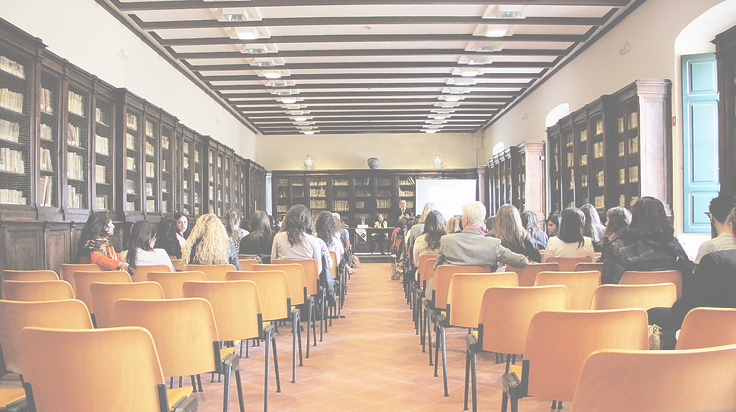
CONSULTING and TRAINING
We have the knowledge and experience you need.
.png)
Native American and Alaska Native peoples were introduced to a classroom setting through residential boarding schools. These experiences were traumatic and have not yet been reconciled. Indigenous children continue to struggle with low graduation rates, high discipline rates, high suspension/expulsion rates, high dropout rates, low testing scores, low academic achievement, and experience PTSD at triple the rate of the general population. Western science is starting to catch up to Indigenous Knowledge and are starting to validate cultural practices, languages, and knowledge systems in their benefits to cognitive, social/emotional, academic, and spiritual health. Swan Innovations works to provide the knowledge and resources for tribal communities and partners to address the unique cultural needs of Indigenous students.
-
Indigenous Epistemologies in Education
-
Building Culturally Appropriate and Relevant Curriculum
-
Brain Based Instructional Strategies
-
Utilizing Tribal Language & Culture AS Academic Content
-
Building Resilience in Native Children and Youth
-
The Impacts of Trauma on the Brain
-
Healing the Brain through Tribal Language and Culture
-
Indigenous Learning Styles
Indigenous peoples of the Americas have faced over five centuries of a brutally violent colonization process. The process of colonizing North America brought about catastrophic loss through diseases, mass murder, separation of families, land theft, and cultural genocide to name a few. This kind of historical trauma is passed on through each successive generation as intergenerational trauma. The trauma is passed on psychologically as Post Traumatic Stress Disorder and can be passed on through a person's genes as Epigenetic Inheritance. These traumas manifest today as Complex Post Traumatic Stress Disorder, Reactive Attachment Disorder, Anxiety Disorders, learning disorders, and addictions (not an exhaustive list). The U.S. Department of Justice asserts that Native American children suffer from PTSD at the same rate as combat veterans returning from the Iraq and Afganistan wars together. Aside from the psychological impacts, trauma also affects physical health which can lead to premature death. The emergence of neurobiology and cultural neuroscience has provided greater insight into the treatment of trauma and how culture impacts brain development. Consultations and trainings available include:
-
Strategies to assist children and adults with managing anxiety at home and in school
-
Classroom strategies to mitigate anxiety and stress
-
Strategies to create emotionally and psychologically safe environments
-
Trauma-Informed Approach
-
Cultural Teachings and Practices in the treatment of trauma
-
Support for Parents, Educators, and Clinicians in culturally-grounded support of children with PTSD
Native language revitalization strategies and interventions are just as unique as the communities that speak them Many factors will determine the best strategies to meet your goals and objectives. Factors include, but are not limited to: number of total first language speakers, percentage of the population that speaks, ages of speakers, geographic location, technology, existing resources, etc. Training and Consulting for language and culture offers services and content for language programs/grass roots efforts at any level of the journey.
-
Promising Practices
-
Curriculum Development
-
Material Development
-
Distance Learning
-
Teaching Methods
-
Lesson Planning
-
Documentation & Preservation
-
Language & Culture AS Behavioral Health
Having culturally sensitive and well thought out administrative policies, procedures, and practices will create a strong foundation to build and grow your vision. We offer consultation and training that is not only culturally responsive, but trauma informed.
-
Needs Assessments
-
Evaluation
-
Strategic Planning
-
Increasing Community Support and Engagement
-
Advocacy - Mental, spiritual, and physical health benefits of language and culture
-
Team Building & Leadership
-
Building Emotional Intelligence
-
Building Motivation
-
Building Budgets based on Tribal Values
-
Developing Job Descriptions
-
Program Assessments

THOUGHT LEADER SERIES
The Thought Leader Series challenges current epistemological assumptions of Western psychology and education. As a result, it will challenge current policies and practices in the human service professions and education. The most important aspect of this exploration will be the discovery of a process which facilitates true transformation for diverse cultural communities, youth and adults. A deep study of the diverse psycho-cultural worldviews and educational epistemologies will help create context in which we can begin to create new solutions in response to our world's suffering. It's time to "unpack" the taken-for-granted, assumed, and habitual which exerts the most profound influence on our society.
The Thought Leader Series of workshops and trainings are designed to take the deep dive into exploring and addressing the psychological, emotional, educational, and spiritual needs of youth, families and communities who struggle. The Thought Leader Series will offer innovative solutions to long-term chronic problems impacting diverse cultural communities. Join us on this journey and help generate new answers to old problems with passion and commitment.
The Thought Leaders Series will strive to create a culturally competent and equitable response to the psychological, sociological, and educational challenges facing our families and communities.
Future workshops, trainings, retreats and webinars will address a diverse array of topics such as (not exhaustive):
-
Multi-cultural, Brain-based teaching strategies
-
Native American Cultural Curriculum design P-20
-
Effective approaches in treating adolescents with co-occurring disorders
-
Faculty professional development
-
Transforming addiction services
-
Designing child-centered programs
-
Creating full-immersion language classrooms
-
Addressing racial disparities in social service programs
-
Transforming systems to assist disenfranchised families
-
Addiction/Codependence
-
Pregnancy and Marijuana Abuse
-
Intergenerational Trauma
-
Treating trauma-impacted children
-
Teaching strategies for children with diverse learning styles
-
Brain-based teaching and parenting
-
Conscious parenting
-
Staff professional development
-
Self-improvement
-
Logical and natural consequences for children/teens
-
Innovative treatment approaches for addicted youth
-
Spirituality
-
Administration: Having the courage to be creative
-
Developing systems of care for diverse cultural communities
-
Stress mangement
-
Culture's impact on brain development
-
Models of empowerment
-
Cultural Resilience Models
-
PTSD: Supporting youth and adults suffering from anxiety and depression